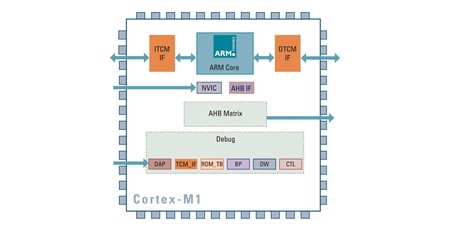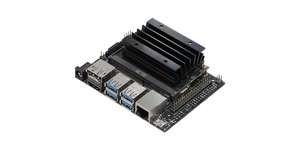Arm has announced it is extending its Flexible Access programme, which previously provided selected industry partners with access to Arm intellectual property (IP) under less onerous terms, to cover academia with the launch of Arm Flexible Access for Research.
The popularity of free and open source silicon (FOSSi) projects, particularly RISC-V, came as something of a blow to Cambridge-based and SoftBank-owned Arm. Arm's initial response was a badly-judged aggressive marketing campaign which went down like a cup of cold sick with both RISC-V fans and Arm's own customers alike. Having licked its wounds, its next overture was more carefully considered: Releasing 'free' Cortex core IP in the hopes they would prove more popular than RISC-V alternatives. These parts use a very different definition of 'free' to RISC-V, however: Where RISC-V is available under a permissive licence to do with what thou wilt, Arm's 'free' cores are free-as-in-beer rather than free-as-in-speech - even going so far as to including licensing terms which prohibit any benchmarking that would compare Arm Cortex IP to FOSSi alternatives.
Now, Arm is opening its IP to researchers - but, as with its 'free' cores, its 'open' cores use a very specific definition of the term.
'In July of this year, Arm announced the availability of Arm Flexible Access which expands how partners can access and license Arm technology for semiconductor design. This new engagement model is already enabling silicon design teams, empowering them with more freedom to experiment, evaluate and innovate by initiating projects and fully designing their SoCs before they license IP, paying only for what they use at production,' claims Eric Hennenhoefer, vice president of Arm's research division. 'Today we are building on this new engagement model, strengthening Arm’s long-standing commitment to academia and research, with the announcement of Arm Flexible Access for Research. This new program will provide the academic research community with access to a wide range of cutting-edge IP without any fees or costs, using a simple click-through end-user licensing agreement (EULA) and thus providing accelerated access to Arm IP.
'The IP available through Arm Flexible Access for Research has been carefully selected to be of the greatest use to academics and researchers with a wide range of research interests. It will include the majority of processors within the Arm Cortex-A, -R and -M families, along with access to complete RTL subsystems and tools which will open up new innovation opportunities for any research project. Alongside the enhanced portfolio of IP and tools becoming available, we are also developing an online community, Arm Research SoC Labs, to help academic researchers share their designs and gain valuable peer feedback to help inform their research. As part of this vibrant, open-access design ecosystem, academic researchers will be able to increase the visibility of their projects and designs, and benefit from the work of other research teams around the world.'
The company's largesse has definite limits, of course: The terms for research access, which must be agreed to on top of a dense multi-page licence agreement, set out that the programme: Is available exclusively to academics for the purposes of academic research; for the design and manufacturer of products which only contain the particular Arm processor IP downloaded through the programme, no mixing and matching with third-party cores; has a hard limit of 1,000 chips manufactured and then for testing purposes only; may include 'constraints on which third parties you can use [for manufacturing],' depending on IP chosen; does not allow for use in a field-programmable gate array (FPGA) except for internal use, evaluation, and the development of software applications; forbids the distribution of the IP, designs, or manufactured parts to third parties.
Of bigger issue for academic use are a pair of clauses which prevent the core IP from being modified, expressly requiring that it is used as-provided, and mandate that any results generated using the IP in research 'may contain confidential information of Arm and hence you shall not disclose such information without Arm's consent.' By contrast, the licence under which the core RISC-V IP is provided allows for absolutely any use for any purposes, including modification and commercial release.
More details on the programme are available on Arm's website.

MSI MPG Velox 100R Chassis Review
October 14 2021 | 15:04









Want to comment? Please log in.